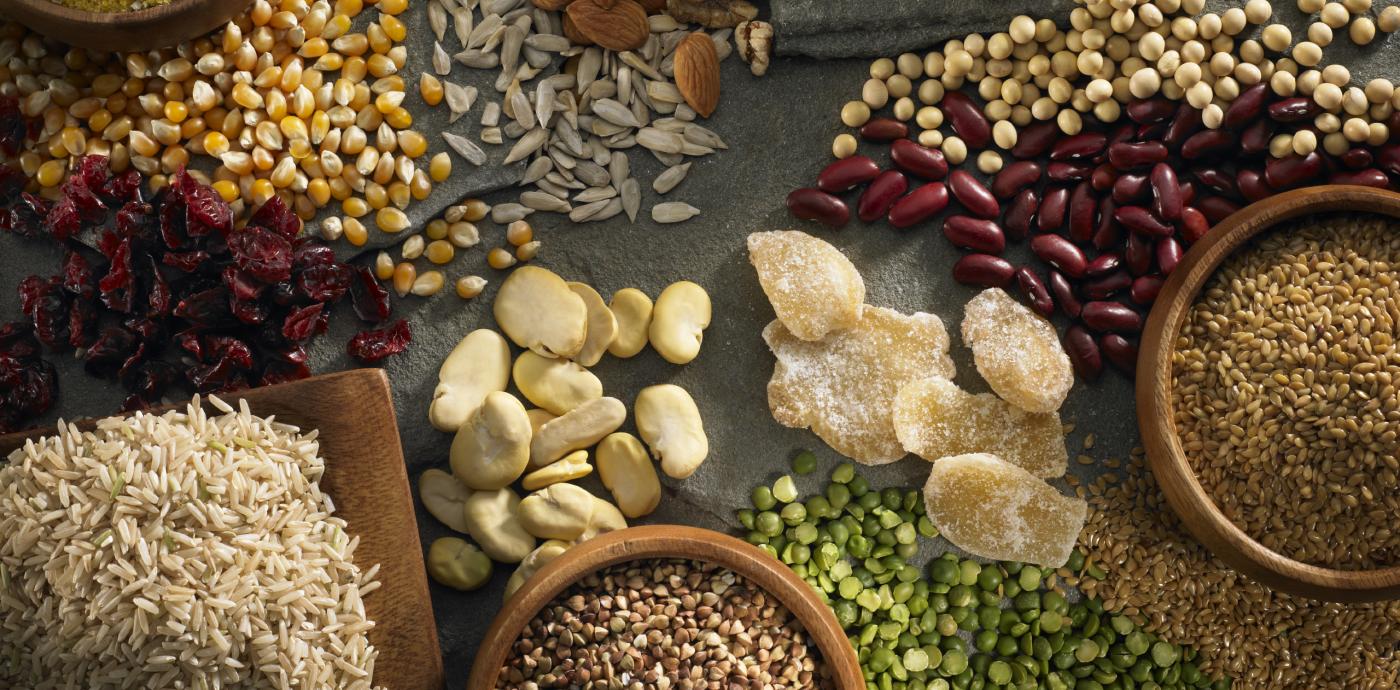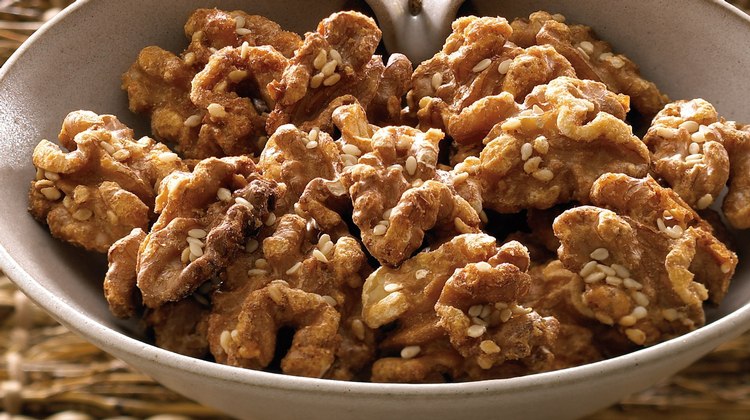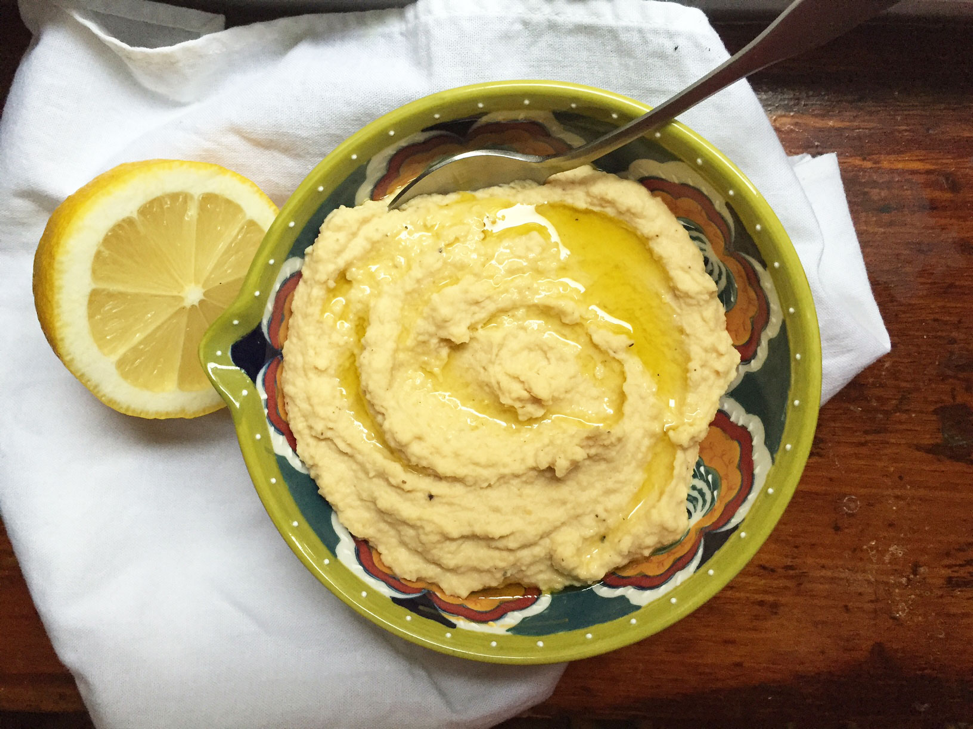Share This
In 2014, archaeologists at a site on the upper Jordan River in Israel discovered the remains of 55 species of 780,000 year-old edible plants, including fruits, leaves, stems, roots, seeds, and tubers, along with seven species of nuts. They also discovered some of the earliest tools in recorded history—pitted hammers and anvils—with which to open the nuts.
All this to say, nuts and seeds have been an important part of the Mediterranean Diet for a really long time.
From a strictly botanical point of view, the line between nuts and seeds is sometimes hard to see. For example, walnuts, almonds, and pistachios are all technically seeds, although we call them nuts. Whatever you call them, they’re not only delicious, but highly nutritious and have been shown to reduce the risk of chronic disease, particularly coronary artery disease. They’re readily available, can be incorporated into various recipes (both sweet and savory) and enjoyed on their own, raw, or roasted. Common nuts and seeds you might encounter in the Mediterranean include almonds, cashews, chestnuts, hazelnuts, pine nuts, pistachios, pumpkin seeds, sesame seeds, sunflower seeds, and walnuts.
Almond trees thrive in a dry, Mediterranean climate, with Spain, Italy, Iran, Morocco, and Turkey as leading regional producers. These days, though, California produces over 80 percent of the world’s almonds. Almonds depend heavily on honeybees for pollination, making their production challenging at a time of bee colony collapse.
Pine nuts (or pignolias in Italian) are harvested from the inside of the pine cone, as their name aptly implies. The pine cones must be heated in order to remove the tasty pine nuts, a labor-intensive process that’s one of the reasons pine nuts are so expensive. Pine nuts are traditionally used in making Italian pesto, though you could also make pesto with pumpkin seeds, cashews, walnuts, or pistachios.
Traveling a few hundred miles west from Italy, you’ll discover the Catalan version of pesto, picada, which is a paste of toasted bread, a blend of toasted nuts, garlic, and olive oil. Romesco, also of Catalan origin, is a paste of charred tomatoes and red peppers, pureed and thickened with toasted almonds and bread. Both are exceptionally versatile nut-based spreads and make a lovely accompaniment to anything from vegetables to fish to meat.
Walnuts are one of the best plant-based sources of omega-3 fatty acids. In fact, one-quarter cup of walnuts provides more than 100 percent of the daily recommended value of omega-3 fats. Put those healthful walnuts to good use in preparing Muhammara, a Turkish and Syrian roasted red pepper spread thickened with walnuts.
Nowadays, most everyone is familiar with hummus, which is made from pureed chickpeas and tahini, the latter being a paste made from sesame seeds, pulverized until smooth and creamy. Sesame seeds also feature prominently in desserts, from pasteli, an ancient Greek honey sesame bar to halva, a sweetened tahini-based treat. Despite their small size, sesame seeds are chock full of vitamins and minerals, and pack a major health punch, aiding in everything from circulation to inflammation, bone strength, and digestion.
Pistachios are part of the cashew family (Anacardiaceae), along with sumac, mangoes, poison ivy, and poison oak. Chopped pistachios make a colorful, not to mention flavorful, addition to grain-based dishes, from pilafs to couscous to pastas, and can be used in lieu of breadcrumbs to encrust fish and meat.
Nuts or seeds—whether raw or lightly toasted to further enhance their flavor—will liven up any salad; are an ideal addition to a bowl of fruit and yogurt; can be soaked and made into homemade, vegan nut and seed milks; or ground into any number of nut or seed butters. Next time you wander down the bulk aisle at your grocery store, don’t overlook the ever-versatile nuts and seeds of the Mediterranean! And to whet your appetite, check out our 12 Great Ways to Use Walnuts.
Want biweekly Med Diet information and recipes in your Inbox? Sign up for our Fresh Fridays newsletter by clicking the Subscribe button at the bottom of this page!
Join the Make Every Day Mediterranean Club Facebook group for additional information and support.




Comments
Add a Comment